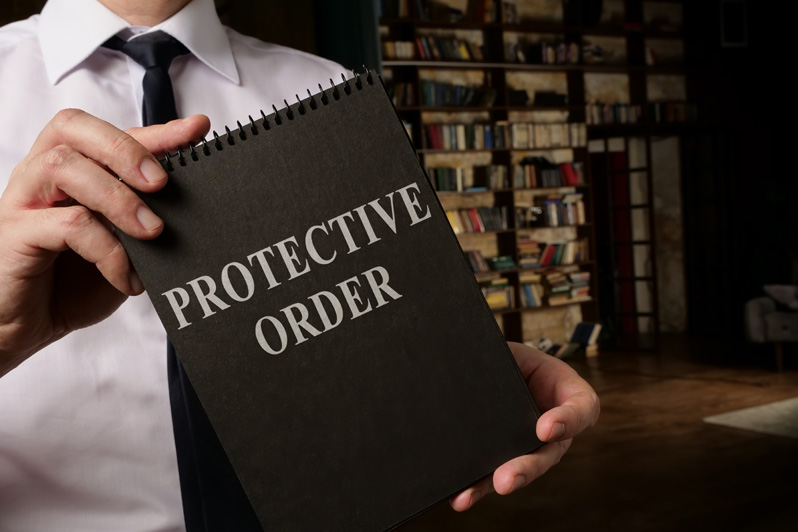In criminal law, a protective order—often referred to as a restraining order—is a court-issued directive aimed at protecting someone from threats, harassment, or physical harm by another individual. Protective orders are frequently used in cases involving domestic violence, stalking, harassment, or other forms of abuse.
What Does a Protective Order Do?
A protective order can place various restrictions on the person it is issued against, known as the “restrained person.” Depending on the case, it may include prohibitions against:
- Contacting the Protected Person: The restrained person is generally prohibited from contacting the protected person in any form, whether through phone calls, texts, emails, or social media.
- Physical Proximity: The order may establish specific distances that the restrained person must keep from the protected person, their home, workplace, or other frequented locations.
- Possession of Firearms: In most cases, the restrained person is required to surrender any firearms they own and is prohibited from purchasing or possessing firearms for the duration of the order.
- Third-Party Contact: Sometimes, a protective order extends to indirect contact, meaning the restrained person cannot use mutual friends, family members, or others to communicate with the protected person.
What Are the Consequences of Violating a Protective Order?
Violating a protective order is a criminal offense and can result in serious consequences. The penalties for violating a protective order vary by jurisdiction but commonly include fines, jail time, or both. Repeated violations can lead to more severe penalties, such as longer jail sentences or more substantial fines.
Protective orders serve as a crucial tool in criminal law for safeguarding individuals at risk. However, they also place significant restrictions on the restrained person’s actions. If you are subject to a protective order, it is essential to understand its terms thoroughly and comply with them fully to avoid legal repercussions.
***
Disclaimer: This blog provides general information and does not constitute legal advice. For specific guidance on your situation, consult with a qualified attorney.

